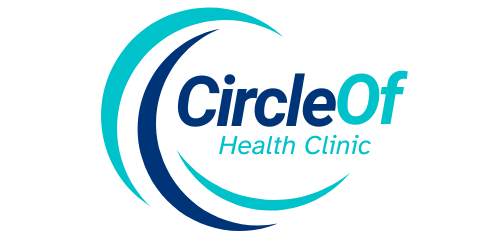Escorting in Germany is a legally recognized and regulated profession. With this legal recognition comes an expectation of public health responsibility. Germany, known for its thorough regulatory frameworks, ensures that those working in personal and intimate services adhere to clear health protocols to protect both themselves and their clients.
For health-focused readers and professionals, understanding the health checks and procedures escorts must follow reveals not just the country’s commitment to safety, but also the professionalism embedded in this industry. The following article outlines the required health checks, their frequency, and the reasoning behind these mandates.
Legal Framework Behind Escort Health Requirements

The key legal document governing sex work, including escorting, in Germany is the Prostitute Protection Act (ProstSchG), introduced in 2017. This law outlines specific responsibilities for both workers and regulatory authorities, focusing on protecting health, combating exploitation, and formalizing the profession within state structures.
Under ProstSchG, any individual providing sexual services must register with the local health authority. One of the prerequisites for registration is undergoing a mandatory health consultation, which is distinct from a medical examination. This health consultation is confidential and aims to educate rather than screen.
Initial Health Consultation: A Legal Requirement
Before an escort can begin working legally, they are required to attend a health consultation at a local Gesundheitsamt (public health office). This initial appointment includes:
- Information on sexually transmitted infections (STIs)
- Discussion on contraception and safe practices
- Advice on addiction prevention and mental health support
- Education on legal rights and responsibilities
It’s important to note that this consultation does not involve blood tests, swabs, or physical examinations. Instead, it is designed to empower the escort with information, reduce stigma, and promote voluntary health care habits.
For example, an independent escort such as Louisa Escort in Munich would complete this consultation as part of the registration process. While there’s no legal requirement for ongoing testing after registration, reputable professionals and agencies often go beyond legal obligations to ensure client and personal safety.
Voluntary Medical Testing: Industry Norms and Best Practice

Although Germany does not require escorts to undergo regular physical testing or provide proof of negative STI status, voluntary testing is strongly encouraged by public health authorities and industry organizations. Many professionals follow a personal health regimen that includes:
- Monthly or quarterly STI screenings (for chlamydia, gonorrhea, syphilis, HIV, etc.)
- Regular gynecological or urological checkups
- Vaccinations for hepatitis A, B, and HPV
Agencies and independent escorts who take health seriously often disclose their health practices to reassure clients. In some cities, local clinics provide free or anonymous STI testing specifically tailored to sex workers. These services are discreet and accessible.
Renewals and Follow-Up Consultations
The initial health consultation is not a one-time obligation. Escorts must renew their registration annually, and for those under the age of 21, every six months. Each renewal includes another health consultation.
This ensures that escorts remain updated on evolving health risks and support services. It’s a unique model: rather than mandating testing and enforcement, the law focuses on education, autonomy, and regular touchpoints with health professionals.
Why No Mandatory Medical Testing?

Germany’s decision not to impose mandatory STI tests is based on several public health principles:
- Voluntary testing increases trust and cooperation. People are more likely to get tested regularly when they feel safe and respected.
- Mandatory testing can create a false sense of security. A negative test is only accurate up to a point in time.
- Stigma reduction. Making health care educational rather than punitive reduces the stigma around sex work and disease.
- Client responsibility. Safe sexual behavior is a shared responsibility. Clients are also encouraged to use protection and access STI checks.
This approach mirrors best practices recommended by global organizations like the WHO and UNAIDS.
Role of Health Authorities and Confidentiality
Each municipality in Germany has its own Gesundheitsamt, which acts as the key authority for registering sex workers and providing consultations.
These offices are required to maintain strict confidentiality. Personal data is stored securely and not shared with employers, clients, or law enforcement unless under specific legal circumstances.
Health personnel at these centers are trained to work sensitively with diverse populations, and interpreters are often available.
Client Expectations and Safe Practices
From the client’s perspective, the German escorting system promotes transparency and safety. Condoms are legally required for all sexual services involving penetration, with few exceptions. Violations can lead to legal consequences for both client and service provider.
Clients should:
- Respect the health boundaries set by the escort
- Not request condomless services
- Undergo regular STI checks themselves if they are active in the industry as customers
These mutual responsibilities are part of why Germany’s model is often praised for its balanced approach to public health and civil liberties.
Key Points for Health-Conscious Clients and Escorts:

- No mandatory STI tests are imposed by the state, but health consultations are legally required before registration and during renewals.
- Consultations are educational, not diagnostic, focusing on disease prevention and service access.
- Regular voluntary testing is strongly encouraged and widely adopted by professional escorts and agencies.
- Confidentiality is guaranteed during all processes handled by the public health offices.
- The emphasis is on education, autonomy, and shared responsibility, not coercion.
A Model Focused on Responsibility and Health Awareness
Germany’s escort health model may appear relaxed on paper—no tests, no blood work—but in practice, it’s a highly functional, health-aware system. It strikes a balance between respecting individual rights and maintaining public health standards.
By centering education, voluntary participation, and professional responsibility, this system ensures that escorts and clients alike can engage in their services safely and confidently.
As with many health systems across Europe, the approach emphasizes long-term well-being over short-term enforcement.
In the end, what keeps the system working is not just the law—it’s the commitment of individuals within the industry to uphold a standard of care.

